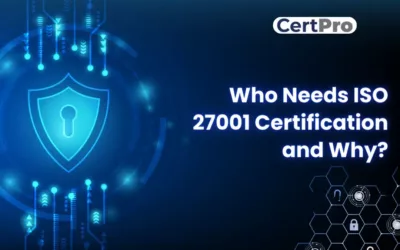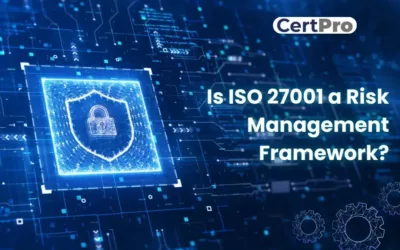UK
ISO CERTIFICATION IN UK
The International Organization for Standardization (ISO) functions as an autonomous entity with the primary goal of formulating standards to guarantee the quality, safety, and efficiency of products or services offered by businesses and organizations globally. In the context of the United Kingdom, obtaining ISO certification is a deliberate process undertaken to validate that businesses or organizations comply with the specified ISO standards, ensuring the delivery of effective and efficient products or services.
These days, getting ISO certification is a much simpler process because of the availability of internet resources. With a few online clicks, one may now obtain this qualification, which was formerly thought to be a difficult task. Businesses may now easily explore and complete the requirements thanks to the UK’s availability of online ISO certification services, which have streamlined the certification procedure.
The online certification method offers a quick and easy approach to getting ISO certified for individuals in the UK. The online platform expedites the application and verification processes, and the process entails adhering to the established ISO criteria. In addition to shortening the certification process, this accessibility shows how ISO procedures have been updated for the digital era.
The organization demonstrates its commitment to efficiency, quality, and safety in providing goods and services by actively pursuing ISO certification in the UK, whether through traditional channels or online platforms. It emphasizes a commitment to upholding global norms and boosting companies’ and organizations’ general credibility.
WHY ISO CERTIFICATION IN UK?
For businesses in the UK hoping to maintain standards, adhere to laws, and enter international markets, figuring out the complexities of obtaining ISO certification is essential. In addition to fostering consumer trust, this certification promotes sustainability and increases operational effectiveness. Getting ISO certified is essential for risk management, competitiveness, and compliance with global standards in the dynamic and cutthroat business environment in the United Kingdom.
In the UK, ISO certification allows trust among stakeholders, including partners, investors, and clients, by providing a concrete commitment to international standards. It is essential for facilitating cross-border trade, removing obstacles, and increasing acceptability. Organizations that possess ISO certificates stand out in the UK market as a testament to their commitment to quality, effectiveness, and continuous development. Streamlining processes in accordance with ISO standards reduces expenses and increases productivity. Consumers gain from reliable, superior goods and services.
It is crucial for UK organizations aiming to obtain ISO certification to comprehend and navigate through the certification procedure. This process is crucial for integrating into the supply chain, especially as it is often a requirement from foreign partners. In summary, the UK’s ISO certification journey strengthens customer relationships, improves operational excellence, increases access to global markets, improves market standing, and encourages environmentally friendly practices. Together, these factors support UK businesses’ success in the domestic and international arenas. For businesses hoping to take advantage of these benefits, understanding how to get ISO certification in the UK is essential.
UNDERSTANDING ISO CERTIFICATION IN UK
The importance of ISO certification in the UK as evidence of a business’s compliance with global standards cannot be overemphasized. ISO accreditation demonstrates a company’s dedication to operational excellence, efficiency, and quality, confirming adherence to international standards. The ISO 9001 certification in the UK represents a company’s commitment to providing exceptional and dependable products and services. The UK’s commitment to sustainable development is in line with the environmental responsibility standard, ISO 14001. ISO 27001 certification in UK focuses on safeguarding sensitive
Related Links
ISO 27001 in UK
SOC 2 in UK
ISO 27701 in UK
GDPR in UK
ISO 27018 in UK
HIPAA in UK
CCPA in UK
PIPEDA in UK
ISO 17025 in UK
ISO 13485 in UK
CE Mark in UK
GDP in UK
GLP in UK
ISO 9001 in UK
ISO 14001 in UK
ISO 45001 in UK
ISO 22000 in UK
HACCP in UK
ISO 22301 in UK
ISO 21001 in UK
ISO 41001 in UK
ISO 20000-1 in UK
data and information, which is particularly relevant amid the ongoing digital transformation in the UK. In the UK’s diversified market, ISO certification is essential for boosting customer confidence and empowering companies to compete worldwide. Beyond demonstrating compliance with strict requirements, ISO certification improves product reliability through waste reduction, process optimization, and inefficiency elimination.
ISO certification in the UK gives companies the ability to set up strong frameworks that comply with global best practices. Businesses that put quality, sustainability, and security first not only benefit themselves but also help to improve the UK’s standing abroad. The International Organization for Standardization (ISO) formally recognizes ISO certification as proof that a company’s management system, procedures, goods, or services fulfill predetermined standards. This independent international organization creates and distributes standards to guarantee quality, safety, and efficacy in a range of sectors. The extensive use of ISO standards gives UK businesses legitimacy when entering international markets. Businesses with ISO certification frequently have a competitive edge by showcasing their dedication to quality and ongoing development.
The UK’s emphasis on sustainability and ISO 14001 certification, which addresses environmental management, are complementary. Customer requirements are often given priority in ISO standards, which improves retention and satisfaction. In international supply chains, ISO certification is very important for UK suppliers. The ISO certification process’s fundamental emphasis on continual development helps UK firms maintain their competitiveness and optimize their operations. In the end, ISO certification builds a business’s trust with partners and customers by proving that it complies with international quality standards.

THE PROCESS OF OBTAINING ISO CERTIFICATION IN UK REQUIRES THE FOLLOWING ESSENTIAL STEPS:
Preparation and Awareness: Getting a deep understanding of the specific ISO standard that matters to your industry and business goals is the first step. Learn about the specifications, benefits, and how-tos for putting the standard into practice.
Planning: Make a detailed plan that outlines the actions required to align your processes with the ISO standard. Create an implementation timeline and distribute responsibilities appropriately.
Documentation: Create or update important documents, such as records, work instructions, policies, and procedures, to make sure they meet the requirements outlined in the ISO standard.
Implementation: Throughout your organization, effortlessly integrate the documented processes and procedures. To guarantee a successful deployment, keep a careful eye on things and make any required adjustments.
Internal Audit: Conduct an internal audit to find any non-conformities and assess how well the deployed processes are working. Take care of these problems and make the required adjustments.
Management Review: To evaluate the success, applicability, and advancement of the ISO management system installation, conduct a management review. Determine if any alterations or enhancements are required.
Certification Body Selection:Select a reputable certification organization to carry out the external audit. The certifying body will thoroughly examine your documentation, procedures, and implementation to assess your readiness for certification.
Stage 1 Audit (Document Review): In order to verify that your processes and documentation comply with the ISO standard’s requirements, the certification body starts by examining them.
Stage 2 Audit (On-Site Audit): To verify the implementation of your ISO management system and determine whether your processes are in line with the standards, the certifying authority performs an on-site audit.
Certification Decision: The certification body determines whether to award certification after examining the audit findings. An ISO certificate will be granted to your business, provided it meets the standard’s standards.
Surveillance Audits: To verify continuous conformity with the ISO standard, the certifying body conducts surveillance audits on a regular basis. These audits typically take place once a year.
Throughout the entire process, it is imperative to maintain tight coordination with the selected certification agency and closely adhere to its rules.
HERE ARE THE TOP 7 MOST POPULAR ISO STANDARDS IN UK
ISO 9001: The implementation of a specific quality management system is required in order to comply with ISO 9001 standards, which regulate quality management. To improve accessibility and expedite the certification process, Mark1 has developed Titan, a customized and user-friendly QMS. Making sure that clients can always count on a high caliber of goods or services from your company is the main goal of ISO 9001. It also strives to guarantee the implementation of best practices and offer your entire company chances for ongoing improvement.
ISO 14001: ISO 14001 is the industry standard for environmental management. It necessitates the establishment of an environmental management system that enables businesses to lessen their environmental impact, stimulates waste reduction, and fosters proactive environmental protection initiatives across the board. This criterion is becoming more and more common, especially as consumers who care about the environment grow increasingly critical of virtue signaling and greenwashing. They look for goods and services that are actually environmentally friendly. Getting ISO 14001 certified is proof of your company’s environmental responsibility based on sound, verifiable procedures.
ISO 27001: The ISO 27001 certification in UK specifies information security management system requirements. It is among the most comforting credentials you can present to your current and prospective customers. This certification promotes all-encompassing strategies with a focus on safeguarding people, procedures, and technology. This highlights your constant attention to detail throughout the board and reassures your clients that their personal data is actively and thoroughly secured.
ISO 45001: The standard for health and safety is ISO 45001. This standard, which is especially common among businesses in the manufacturing and construction industries, demonstrates an organization’s commitment to controlling and reducing risks to health and safety, which eventually promotes a safer work environment for employees. A systematic approach, involving employee engagement for awareness and continuous improvement of individual and organizational safety, ensures compliance with legal and contractual requirements.
CE MARK: The Conformitè Europëenne (CE) certification denotes adherence to environmental, health, and safety regulations for goods produced, created, and marketed inside the European Economic Area (EEA). Although it is not only available to EEA organizations, organizations outside of the EU are also able to accept and obtain the CE mark. While not required, the EEA contains a list of 25 directives and regulations (pertaining to different items) that require the use of the CE mark. Acquiring certification with the CE mark signifies dependability, uniformity, and effectiveness. Moreover, the certification guarantees that the product you sell is risk-free and does not endanger human life.
ISO 22000: A person’s health greatly depends on the quality and safety of the food they eat. Every company involved in the food supply chain in the UK should prioritize ISO 22000 certification. Producers, manufacturers, distributors, storage facilities, merchants, and even restaurant owners who utilize this certification can guarantee food safety to patrons.
ISO 21001: The International Organization for Standardization (ISO) has released ISO 21001, a global standard created especially as a management tool for businesses that offer educational services and goods. In the UK, the ISO 21001 accreditation helps educational providers meet students’ needs and standards. The goal of the ISO 21001 standard is to guarantee that educational establishments provide students and learners with the best possible instruction.
BENEFITS OF ISO CERTIFICATION IN UK
In the UK, ISO certification enhances customer satisfaction and gives British businesses a clear competitive edge by signifying adherence to international quality standards. ISO certification reduces the risk of business failure by ensuring the careful implementation of processes, which goes beyond simply attesting to quality. Businesses in the UK can benefit greatly from adopting ISO certification, which fosters expansion, credibility, and operational excellence.
First and foremost, ISO certification improves a business’s standing in the marketplace by demonstrating a strong dedication to global standards, which in turn inspires trust in clients. This increased trustworthiness leads to increased customer loyalty and retention, which strengthens the company’s position in the market.
ISO certification reduces trade obstacles, makes it easier to enter international markets, and creates a standard for quality. This is particularly advantageous for British businesses hoping to expand internationally and take advantage of favorable economic conditions. Additionally, UK companies that have earned their ISO certification stand out from competitors and have a competitive advantage in the market. This certification, showcasing their unwavering commitment to quality, efficiency, and continuous progress, sets them apart and draws potential clients and business partners.
- Global Recognition: The international acknowledgment of ISO certification opens avenues for British enterprises, easing global trade and extending their influence in the international market. This recognition grants UK enterprises a noteworthy competitive edge, empowering them to navigate international markets with credibility and trust.
- Enhanced Credibility: It increases confidence and credibility with investors, partners, and clients on a national and worldwide level.
- Competitive Advantage: Businesses with an ISO certification beat their competitors because they demonstrate their commitment to quality and excellence.
- Operational Efficiency: Process enhancements lead to an overall rise in operational effectiveness.
- Supply Chain Integration:For many global supply chains, ISO certification is essential as it presents chances for cooperation with foreign partners.
- Market Standing: Obtaining ISO certification improves a business’s standing in the marketplace, drawing in more customers and increasing business prospects.
- Legal and Regulatory Compliance: ISO certification simplifies compliance with both national and international laws.
- Investor Confidence: Demonstrating a commitment to best practices boosts investor confidence.
ISO certification in the UK empowers companies to thrive in a competitive environment, establish trust in international marketplaces, uphold ethical and sustainable business practices, and consistently improve their operations for long-term success.
ISO CERTIFICATION BODIES IN UK
AFNOR: AFNOR was established in 1926 and functions as a specialized association under the 1901 statute. Its membership comprises over 2500 firms. In addition to being committed to spearheading and directing the standards development process, AFNOR strives to encourage the broad adoption of these standards across a range of businesses. Consider getting in touch with AFNOR or the appropriate accrediting bodies in your area for the most recent information.
BSI Group (British Standards Institution): BSI, a leading global certification body, focuses on delivering specialized services aligned with standards such as ISO 9001, ISO 14001, ISO 27001, and more. In particular, BSI is renowned for its expertise in ISO/TS 16949 certification, a quality management system standard tailored for the automotive sector. With the transition to IATF 16949, surpassing ISO/TS 16949, automotive firms are urged to actively showcase their commitment to industry-specific quality and safety standards. BSI conducts thorough audits and assessments, playing a pivotal role in empowering automotive entities to elevate standards in quality, efficiency, and compliance. For the latest information, reach out to BSI or the relevant accreditation authorities.
UKAS Accredited Body: The United Kingdom Accreditation Service is known by its acronym, UKAS. The UK government only recognizes it as the one national certification body capable of evaluating and accrediting companies that offer conformity assessment services. In order to guarantee the proficiency, objectivity, and integrity of companies providing services like testing, calibration, certification, and inspection, UKAS is essential. UKAS accreditation enables businesses to instill faith and confidence in their services, ensuring adherence to international standards.
Infinity Group: Infinity Group guarantees adherence to ISO 27001, ISO 9001, and ISO 14001 standards. The British Assessment Bureau independently evaluates and accredits it through the UKAS. We are pleased to have regained our accreditation for all three of the ISO certifications in 2019 after a comprehensive project for each standard. Our organizational culture, leadership, and dedication to ongoing development were all praised by the auditors. Our triple ISO certifications are now prerequisites for larger tenders that we often participate in, and they stand for sound corporate governance and sustainable business practices. Get in touch with Infinity Group or the appropriate accrediting body for the most recent details.
IAF: The International Accreditation Forum is referred to as IAF. It is an international organization of accrediting agencies that collaborates to guarantee the uniformity of accrediting procedures across borders. Members of the IAF work together to advance recognized certification and inspection as global standards. By fostering confidence and trust in the goods and services covered by authorized conformity assessments, the objective is to promote international trade.
INDUSTRIES THAT BENEFIT FROM ISO CERTIFICATION IN UK
The extensive advantages of ISO certification have had a significant impact on a number of UK industries, leading many businesses to realize how important it is to their success. These certificates represent a dedication to sustainability, safety, and quality that goes beyond simple credentials. ISO 9001 accreditation improves the efficiency and product quality of the UK manufacturing industry. In addition to raising customer pleasure, this gives businesses a strong platform in cutthroat industries and promotes customer confidence and a culture of continuous development.
In an era where data is extremely valuable, ISO 27001 certification in UK is essential in the UK’s IT industry. Leveraging technological improvements and protecting sensitive data is made possible for the sector by strengthening risk management and data security practices. Establishing confidence with clients from a variety of industries and guaranteeing business success are contingent upon this. The UK’s automotive industry is reliant on the ISO/TS 16949 standard, which guarantees the safety and dependability of vehicles and enhances the nation’s standing as a prominent global producer of superior autos. Healthcare certificates enhance the UK’s healthcare system by ensuring accuracy, compliance with the law, and maintaining high standards.
Beyond specific businesses, ISO accreditation improves society at large by encouraging ecologically responsible and sustainable building practices. The United Kingdom becomes healthier, wealthier, and more sustainable as a result of improvements in healthcare, education, and environmentally responsible corporate practices across all industries. British businesses looking to get ISO certified benefit from the knowledge of UK ISO consultants, who help them comply with national laws and standards and progress society at large.
FAQ
Which ISO standards do businesses in the UK commonly seek?
In the UK, businesses commonly pursue ISO 9001:2015 for quality management, ISO 14001:2015 for environmental management, ISO 27001:2013 for information security, ISO 45001:2018 for occupational health and safety, and others such as ISO 22000, ISO 21001, and CE Mark for specific industry requirements.
How does ISO certification benefit businesses in the UK?
ISO certification in the UK provides enhanced credibility, improved market access, operational efficiency, increased customer satisfaction, and a competitive advantage on a global scale. It signals a commitment to quality, adherence to international standards, and sustainable business practices.
Why is ISO certification important for businesses in the UK?
ISO certification is crucial for UK businesses as it demonstrates dedication to operational excellence, adherence to global standards, and continuous improvement. It facilitates international trade, enhances market reputation, and provides a competitive edge in the dynamic business environment.
What are the key steps in obtaining ISO certification in the UK?
Obtaining ISO Certification in the UK involves steps such as preparation, planning, documentation, implementation, internal audit, management review, certification body selection, document review, on-site audit, certification decision, and regular surveillance audits to ensure ongoing compliance.
Which industries in the UK benefit the most from ISO certification?
ISO certification benefits a wide range of industries in the UK, including manufacturing, IT, automotive, healthcare, construction, and more. The certifications contribute to operational efficiency, product quality, data security, and overall business excellence.
IS SOC 2 THE SAME AS ISO 27001?
In today's digital landscape, ensuring the safeguarding of client data is paramount for businesses. Adhering to recognized compliance standards is vital to meeting this demand. ISO 27001 vs. SOC 2 represent two prominent benchmarks in the realm of data security with...
WHO NEEDS ISO 27001 CERTIFICATION AND WHY?
The esteemed ISO 27001 security framework is designed to evaluate the effectiveness of an organization's Information Security Management System (ISMS) in safeguarding its data. Obtaining ISO 27001 certification is a practical way for a corporation to demonstrate its...
IS ISO 27001 RISK ASSESSMENT VITAL FOR SECURITY MEASURES?
The ISO 27001 standard provides a framework for information security, highlighting the importance of a thorough risk assessment procedure. Organizations use the methodical and complex ISO 27001 risk assessment process to identify and assess information security...












